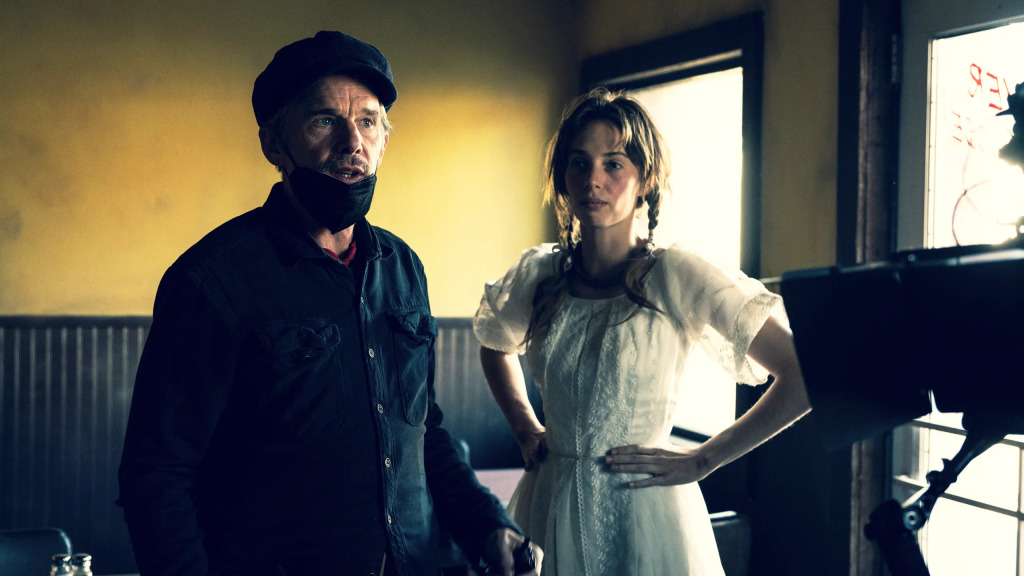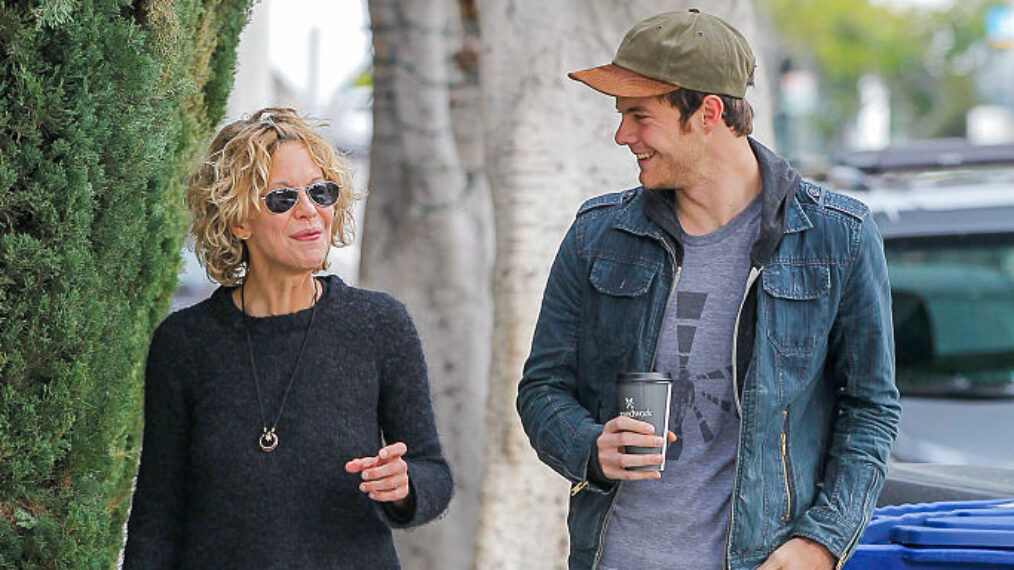
Remy Blumenfeld, a 59-year-old British television producer with numerous successful television programs and documentaries, began writing a column last year at the invitation of The Hollywood Reporter, offering insider insights and industry guidance. His latest column, titled "Nepo: The Next Generation," explores the growing phenomenon of second-generation succession in Hollywood and the global film, television, and cultural industries, resonating with many.
"Meet today's rising stars: Maya Hawke, daughter of Uma Thurman and Ethan Hawke; Jack Quaid, son of Meg Ryan and Dennis Quaid; Zoë Kravitz, child of Lisa Bonet and Lenny Kravitz. Also, John David Washington, Margaret Qualley, Dakota Johnson, Maude Apatow, and even Destry Spielberg is now a director."

Ethan Hawke and Maya Hawke on the set of "Wildcats."
Blumenfeld begins his article by naming several of the second-generation stars and directors currently enjoying significant success in Hollywood. Among them, Maya Hawke, born in 1998, has been in the industry for eight years, starring in films like "Fear Street," "Revenge of the Girls," and "Stranger Things," and even voicing Jiao Jiao in the hit animated film "Inside Out." Her father, Ethan Hawke, also cast his daughter in the lead role of "Wildcats," which he directed two years ago.

Meg Ryan and her son Jack Quaid
Jack Quaid, born in 1992, started acting in 2012 and had two leading roles released in the first half of this year alone: The Perfect Match and Painless Kane. Others mentioned include Zoe Kravitz, who plays Catwoman in The Batman, John David Washington (Denzel Washington's son) in Christopher Nolan's Tenet, and Margaret Qualley (Andie MacDowell's daughter) in The Substance, all of whom are already A-list actors.

Margaret Qualley and her mother Andie MacDowell
Relatively speaking, the least famous person is Destry Spielberg, daughter of the famous director Steven Spielberg. However, her 2022 short film "Let Me Go" sparked heated discussion, not because of the quality of the film itself, but because it starred Hopper Penn, the son of Sean Penn and Robin Wright, and was written by Owen King, the son of Stephen King. It was a great combination of second-generation talents, which made many grassroots filmmakers with few opportunities feel deeply moved.

Sean Penn with his son Hopper Penn and daughter Dylan Penn
However, as author Blumenfeld points out in the article, this kind of nepotism has a long history in Hollywood and is nothing new. However, compared to the past, today's generation of "Nepot Babies" presents a significant difference. "Back then, there was nepotism: the Fonda family (Henry, Jane, Bridget), the Barrymore family (John, Lionel, Drew), the Huston family (Walter, John, Anjelica). But back then, nepotism operated behind the scenes, cloaked in code. They'd say someone was discovered at a party, or rose to prominence in a certain music video. It was also a rigged game, but at least it was rigged with some taste."
In contrast, today's second-generation Hollywood stars no longer shy about their identities; instead, they openly promote them. As Blumenfeld writes, "Background is no longer just a nice-to-have; it's the very essence of success."
Blumenfeld believes the biggest reason behind this shift is the rise of streaming platforms. "Netflix alone releases over 1,300 new films annually. Add in other companies in the streaming space, and the sheer volume of film and television productions is vastly different than it used to be. Consequently, faced with this overwhelming amount of choice, familiar names have become a screening tool. Recognition is money. A famous surname is itself a form of intellectual property, as it's instantly recognizable to the audience and easier to package and promote."
Indeed, take Destry Spielberg as an example. Following the short film "Let Me Go," she completed her feature debut, "Don't Feed," at the end of 2023. The film premiered at last year's Sitges Film Festival in Spain, but received poor reviews and struggled to find a distributor. This past June, the film was released directly on the streaming platform Tubi, a small streaming platform acquired only five years ago by media mogul Murdoch's Fox. Currently, it boasts only 100 million subscribers worldwide. It's no surprise that Spielberg's film has received fewer than 900 ratings on IMDb, a film ratings website, since its June release, currently holding a 4.7 out of 10. In the past, such a film would likely have received no distributor's interest, and its very existence would have been questionable.

Spielberg and his daughter Destry
Remi Blumenfeld believes Hollywood once sold dreams. Aside from the few aforementioned Hollywood acting families, the vast majority of filmmakers who later achieved fame and fortune started from the bottom in their youth. "This is the myth Hollywood once peddled: anyone can succeed. Even if it was just a myth, it was at least aspirational. Today, that myth has faded. The selling point has become a sense of familiarity and familiarity. In an age of content overload, audiences don't want to invest the time and energy to learn about 500 newcomers."
"What's even worse is that nepotism extends beyond actors. A photographer's son becomes a director; a producer's daughter becomes a studio executive. While some unconnected "little ones" may occasionally gain attention, nepotism has long dictated everything, even off-camera, in places invisible to the audience—in writers' rooms, project discussions, and promotional events. Or perhaps we could say it's more than just nepotism; it's a form of cultural infiltration. The second generation has been raised in this world since childhood. They've been learning how the industry works: how to communicate with agents, what to wear to Cannes, how to pitch their work to Netflix. Their education begins long before they even attend film school, and they possess a far more comprehensive network of connections than most. They inherit not only access to projects but also a seamless network of connections. In the past, Hollywood was about the dream of prosperity, where anyone could succeed. Now, even that dream is predetermined, with who will act and who will write."
Finally, it's worth mentioning that author Remi Blumenfeld can technically be considered a "second-generation artist." His grandfather, Erwin Blumenfeld, was a pioneering Dadaist photographer and renowned fashion photographer; his father, Yorick Blumenfeld, was a writer; and his mother, Irène Blumenfeld, was a British sculptor. Although Remi's career path differs radically from that of his parents and grandparents, as the descendant of a prominent figure in the arts, he's likely well aware of his advantages compared to those of the grassroots.